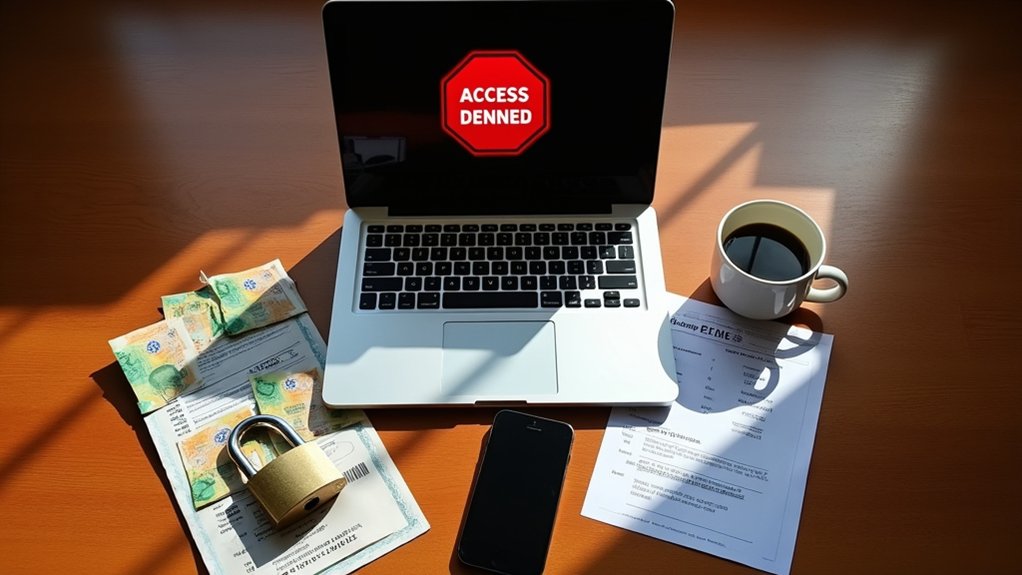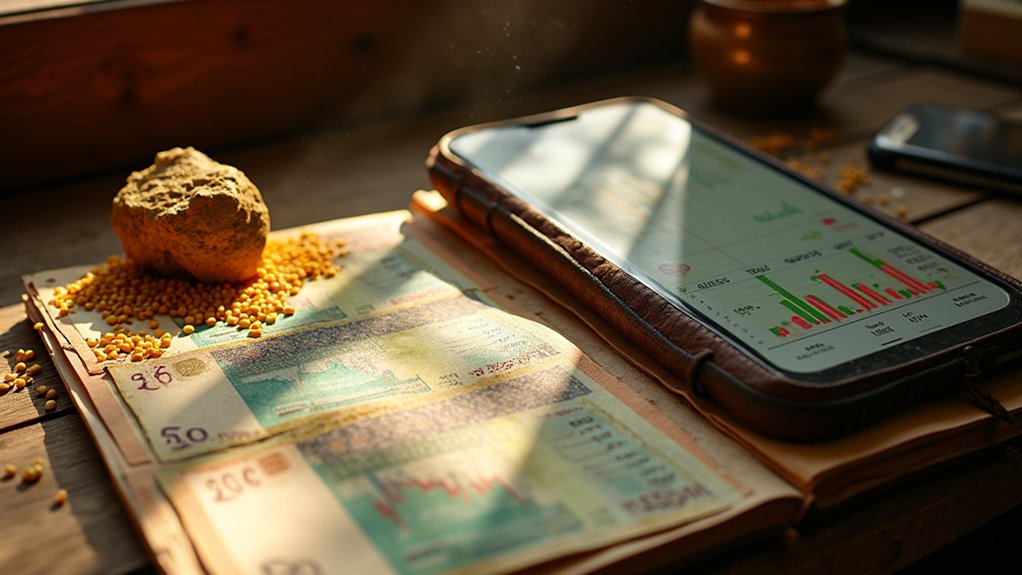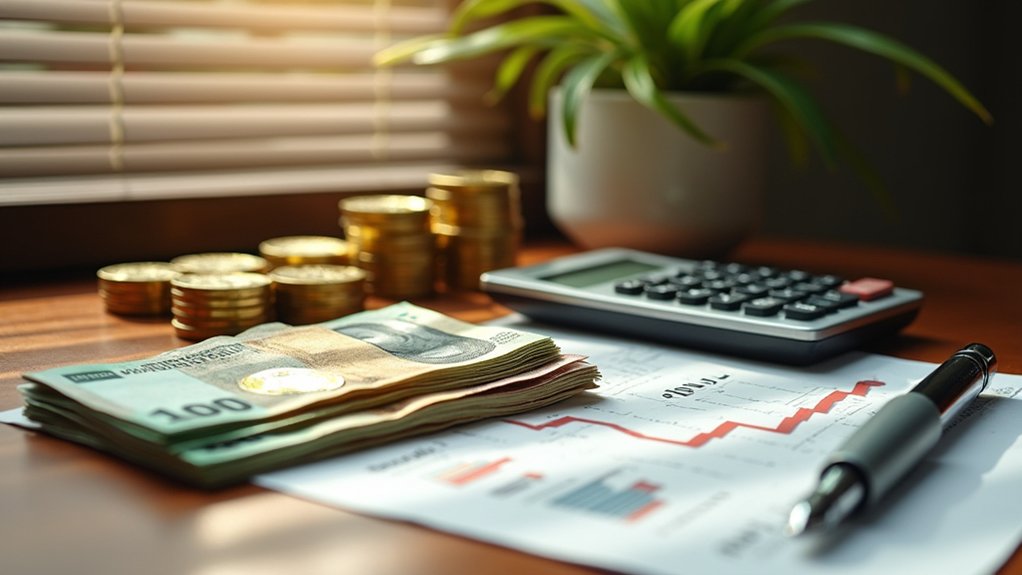Forex trading is legal in Gabon under CEMAC rules enforced by BEAC and the Ministry of Finance, but the capital controls make it borderline absurd in practice. Residents can't hold foreign currency accounts without BEAC approval—which is basically reserved for banks and occasionally corporations—yet international brokers serving Gabon require exactly those accounts to trade. Six major offshore brokers accept Gabonese clients through licenses from CySEC, FCA, FSCA, or Seychelles FSA, offering MetaTrader platforms and 60–70+ pairs. Chronic foreign currency shortages and strict repatriation rules create a regulatory maze that rewards the persistent and punishes the unprepared.
Quick Facts That Matter
- Forex trading is legal in Gabon under CEMAC rules, with BEAC and the Ministry of Finance providing oversight.
- Residents cannot hold foreign currency accounts without BEAC approval, creating contradictions for retail traders using international platforms.
- Six major international brokers accept Gabonese clients via offshore licenses since no local retail forex licensing authority exists.
- Chronic foreign currency shortages and strict capital controls drive black market proliferation with rates above official levels.
- Social media platforms are primary fraud channels, with 32% of forex scams originating on Facebook, Instagram, and similar networks.
Overview: Forex Trading in Gabon
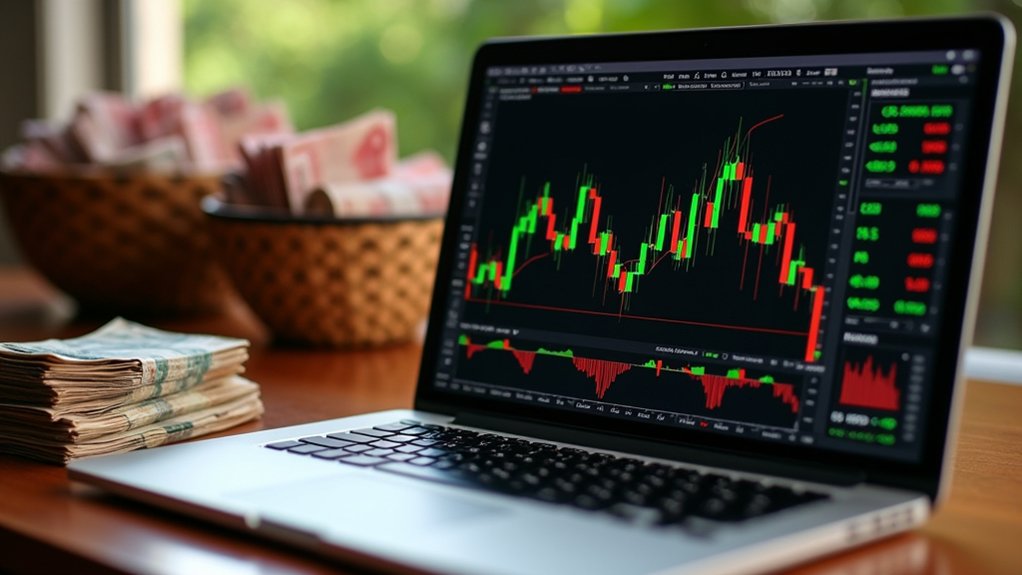
In the heart of Central Africa, Gabonese retail traders are tapping into global forex markets through international brokers—no local exchange required.
Forex trading is legal in Gabon, regulated by BEAC and the Ministry of Finance under rules that kicked in March 2019. Six major international brokers accept Gabonese clients, offering access to 60-70+ currency pairs via MetaTrader platforms. Minimum deposits range from 30,000 to 120,000 XAF.
But here's the catch: foreign currency shortages plague official channels. Banks can't get enough dollars. The National Economic and Financial Committee flagged the shortage in September, warning it threatens financial stability. Travelers can carry up to 5 million XAF without customs declaration, but amounts above require formal reporting. So traders—and plenty of others—turn to informal markets where rates climb above official levels. Like neighboring Chad, Gabon faces regulatory challenges in balancing market access with oversight of foreign exchange activities. Supply problems, meet demand reality.
Is Forex Trading Legal in Gabon?
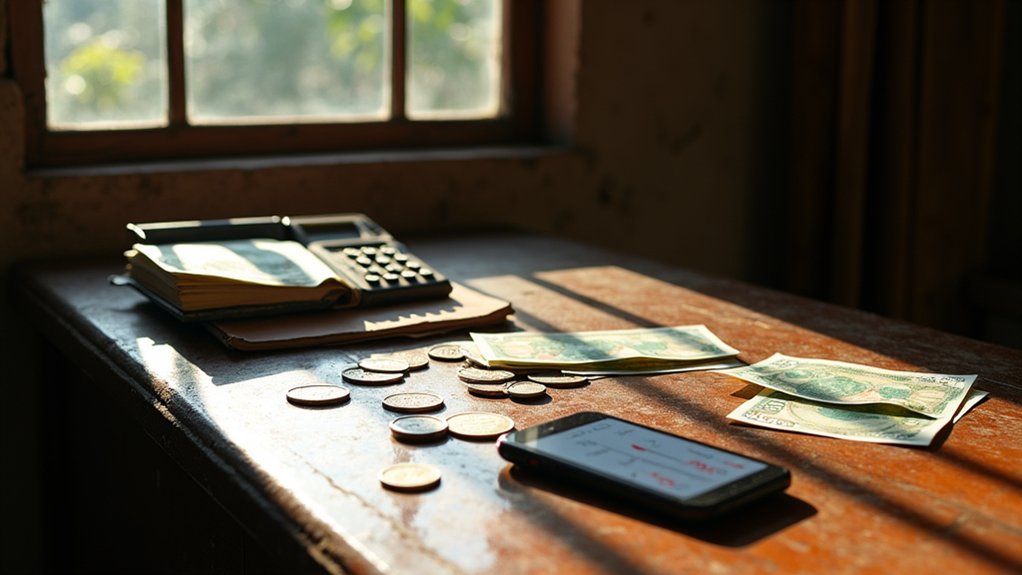
Forex trading is legal in Gabon—full stop. It's regulated under CEMAC rules, overseen by COSUMAF, and thousands of residents already do it. Open an account, deposit funds, trade currencies. Nobody's going to arrest you.
But here's the catch: residents aren't allowed to hold foreign currency accounts. Yes, you read that right. Trade forex legally, but don't actually hold foreign currency. The Ministry of Finance and BEAC control currency holdings tightly. Corporate entities can request special authorization, but for regular folks? Good luck with that contradiction. Welcome to regulatory irony, Gabonese style.
Gabonese traders typically access the market through internationally regulated brokers like Exness, which operates under licenses from the FSA Seychelles, FSCA South Africa, CySEC Cyprus, and FCA UK. The Ministry of Budget holds overall authority for exchange control and financial market regulation in the country. Gabon operates within the CFA franc zone, where foreign exchange markets face additional oversight from regional institutions beyond national regulators.
Who Regulates Forex Trading in Gabon?
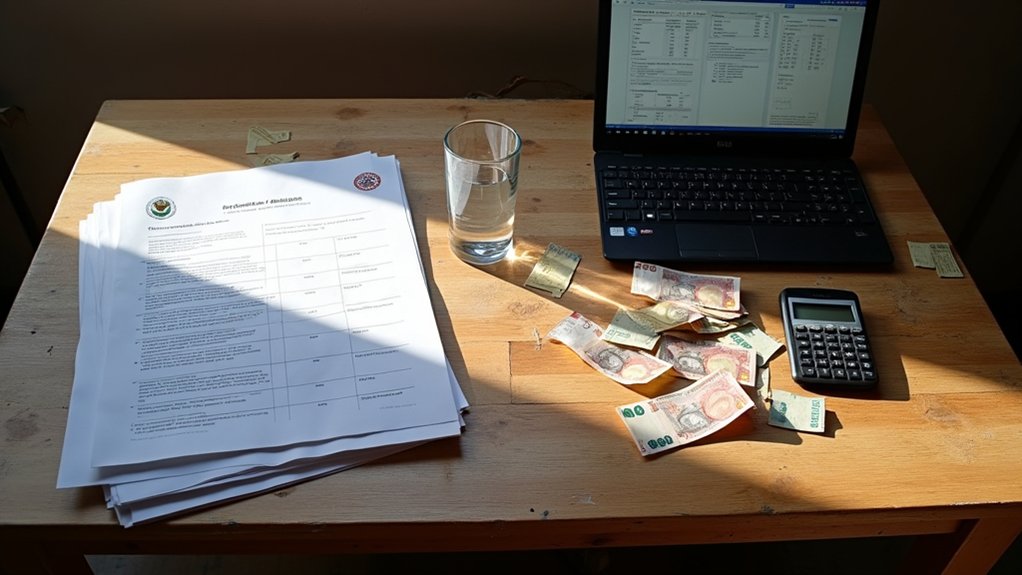
Who's actually in charge here? BEAC—the Bank of Central African States—runs the show for Gabon and five other countries. They're the central bank, handling forex licensing and regulation across the CEMAC zone.
The Ministry of Finance oversees exchange controls locally. COBAC supervises banks, COSUMAF watches financial markets, CRCA handles insurance. All regional bodies.
CEMAC Regulation 02/18 from 2018 governs foreign exchange rules, replacing older frameworks.
Here's the kicker: Gabon has no dedicated local forex licensing authority. International brokers need offshore licenses—CySEC, FCA, FSCA, FSA Seychelles—to operate here. The Financial Services Authority of Seychelles has become a common regulatory choice for brokers serving African markets due to its accessible licensing framework. Regulatory patchwork at its finest.
How Forex Trading Works in Gabon
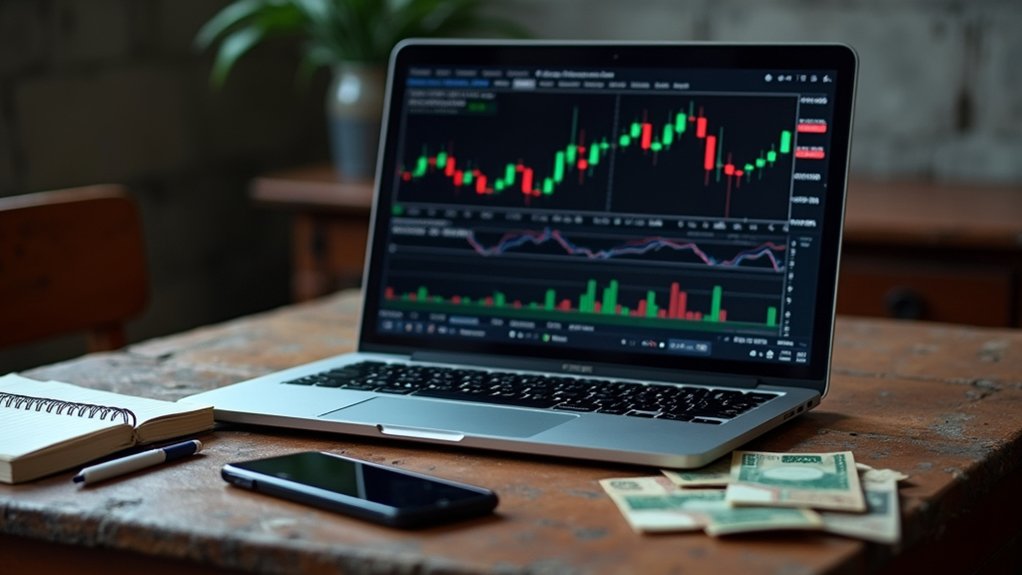
Regulations are one thing. Reality is another. Retail forex trading in Gabon operates under strict CEMAC controls that make it nearly impossible for ordinary residents.
Want to open a foreign currency account? Forget it—residents can't do that without BEAC approval, and good luck getting that if you're not a bank.
Opening a foreign currency account as a Gabon resident requires BEAC approval—an authorization practically reserved for banks alone.
Trading platforms like MT4? They require foreign accounts, which are prohibited. The system is designed for export businesses and banks, not individual traders.
Even moving USD 2,000 triggers documentation requirements. The infrastructure simply doesn't exist for retail forex participation. It's that straightforward.
Similar to Sudan's economic framework, Gabon's forex restrictions stem from broader capital control policies that prioritize monetary stability over individual market access.
Best Time to Trade from Gabon
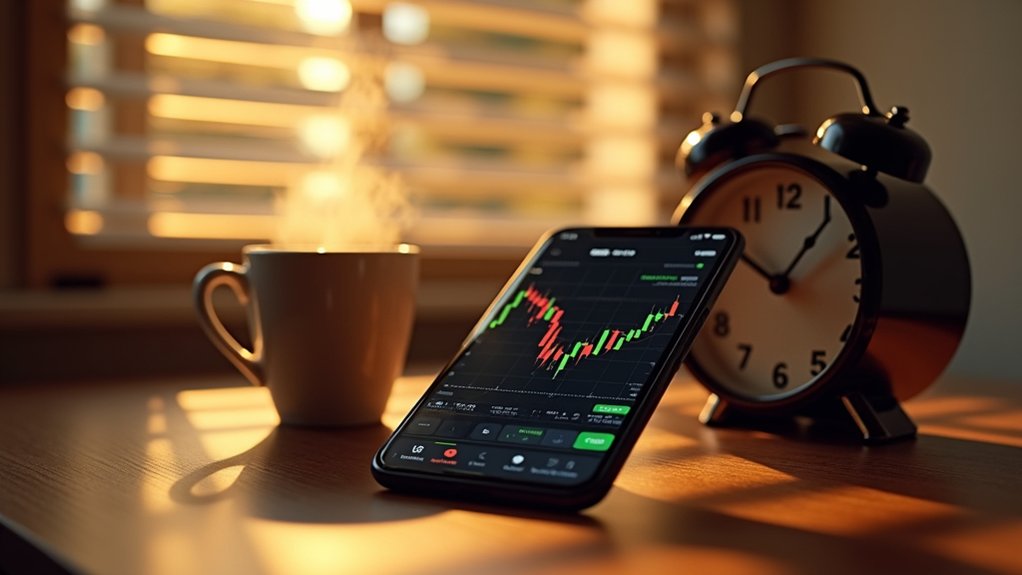
Timing matters in forex—if you can actually trade, which most Gabonese can't anyway.
Gabon sits in WAT (UTC+1), placing the London-New York overlap squarely between 1:00 PM and 5:00 PM local time. That's when liquidity peaks and EUR/USD moves hardest.
The London session runs 8:00 AM to 5:00 PM WAT, New York from 2:00 PM to 11:00 PM.
Overlap windows generate 70+ pip swings versus 30 pips in single sessions. Calm slow markets outside these periods waste time and effort.
Tokyo-London overlap? Brief—8:00 to 9:00 AM—but workable for JPY pairs.
Markets operate 24/5, Sunday evening through Friday night.
Different currency pairs exhibit varying activity levels depending on which trading sessions are open and the time zones of their underlying economies.
Avoid late Sunday and early Monday when liquidity is thin and spreads widen unpredictably.
Payments, Deposits and Withdrawals in Gabon
Moving money in and out of Gabon for forex trading? Good luck. Residents can't hold foreign currency accounts—banking establishments excepted. That's Section 41 of the FX Regulation, March 2019.
Gabonese residents barred from foreign currency accounts under Section 41, March 2019 FX Regulation—only banks get the exception.
Brokers like IC Markets want XAF 120,903 minimum; Moneta Markets drops it to XAF 30,226.
But here's the kicker: exporters must return proceeds to CEMAC nations only. Repatriate to a non-domiciliary bank? That's a 2% fine.
BEAC delays currency provisioning, so black markets thrive. Companies struggle collecting payment. International investors face hostile conditions. Cumbersome approvals. Sanctions everywhere. It's a mess. Gabonese traders accessing international forex markets must also contend with benchmark exchange rate calculations that determine daily currency valuations at 4pm London time.
Taxes, Reporting and Money Rules in Gabon
Trading forex in Gabon? Brace yourself for paperwork. The Bank of Central African States and Ministry of Finance want to know everything. Residents can't open foreign currency accounts—banking establishments excepted.
Import and export transactions must go through a licensed local bank. Export proceeds? Repatriate them to the CEMAC banking system or face penalties: 10% of what you didn't bring back, plus suspension of transfer operations for one to nine months.
Carry too much cash across the border? Declare it at customs. BEAC can demand contracts for any FX operation. Compliance isn't optional here.
While BEAC maintains strict capital controls in the CEMAC zone, other African central banks like Morocco's have adopted different approaches to currency reserves management and exchange rate flexibility.
Forex Trading Scams and Risks in Gabon
Frequently, Gabonese retail traders stumble into forex scams through their Facebook and Instagram feeds—32% of all forex fraud originates on social media platforms.
Scammers flood TikTok, Twitter, and Telegram with fake testimonials and trading profiles. The tactics work. One crypto scheme called “Sonnedix Gabon” blended community outreach with investment pitches, creating an illusion of legitimacy.
Across the region, about 65,000 victims lost $300 million to such operations.
Gabon’s judicial system offers limited deterrence. Cross-border criminal networks exploit weak regulatory enforcement, often using falsified documents and ethnically-based connections. Data breaches compound the problem, enabling fraudsters to hijack legitimate trading accounts.
Quick Q and A
Can I Trade Forex Part-Time While Keeping My Regular Job in Gabon?
Yes, part-time forex trading is legally permitted in Gabon while maintaining regular employment. Traders can access ten regulated brokers offering MetaTrader platforms with flexible hours. However, chronic foreign exchange shortages and strict CEMAC capital controls present significant operational challenges.
What Internet Speed Do I Need for Forex Trading in Gabon?
A stable connection of at least 1-2 Mbps suffices for most forex trading platforms. Gabon's urban areas typically exceed this threshold, though traders should prioritize connection stability and low latency over raw speed for best order execution.
Do Gabonese Banks Allow International Wire Transfers to Forex Brokers?
Gabonese banks permit international wire transfers to forex brokers, though such transactions incur substantial fees ($60+ per transfer), suffer 4-6% exchange rate markups on XAF conversions, and experience slower processing times compared to specialized money transfer services.
Can I Open a Forex Account if I Don't Speak English?
Yes, many brokers offer French-language support and platforms, which is beneficial for Gabonese traders. Some also provide accounts in Portuguese and other languages. However, English remains dominant in forex trading materials and most broker communications globally.
What Happens to My Trades During Power Outages in Gabon?
During power outages in Gabon, active trades remain open on broker servers. However, traders cannot monitor positions, adjust stop-losses, or close trades until power and internet connectivity restore, potentially exposing them to unmanaged market risk.
The Bottom Line
Forex trading in Gabon exists in regulatory limbo. It's accessible—platforms work, money moves, trades execute. But protection? Minimal. Legal clarity? Nonexistent. The CFA franc pegs to the euro while traders chase USD pairs through offshore brokers nobody supervises. Internet cuts out. Banks ask questions. Tax rules stay vague. It functions, technically. Just don't expect anyone to help when things go sideways. Welcome to unregulated markets, African edition.

